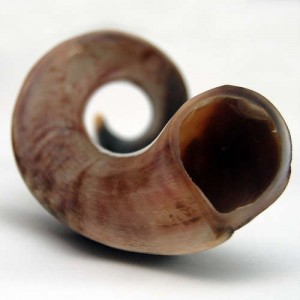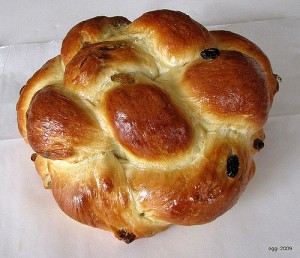Are You Ready To Get High?
One of the main messages in my book is how ancient Jewish wisdom applies to all modern families, and this is never truer than during the fall holiday season, the month of Elul, which is a time of repentance in preparation for the High Holidays. Judaism gives us plenty of opportunities to improve ourselves throughout the year, but during the 10-day period between Rosh Hashanah and Yom Kippur, known as the Days of Awe, it’s time to kick into high gear.
For parents, this means we have an excuse to put our busy lives aside for a moment to focus on our relationship with ourselves, with God, and with those we love. In other words, let the guilt go, people. Fortunately, Jewish rituals and traditions help us teach our children these deep, profound, lifelong lessons.
The midrash, or legend, is that God opens the Book of Life on Rosh Hashanah and judges each person and writes down his or her fate for the next year. If we truly repent our sins—through action, not just words—God shows mercy and wipes our slate clean for a new start. The record closes again at sundown on Yom Kippur, so no dillydallying.
It’s no surprise that synagogue is packed with people this time of year, and we’re usually dressed in our holiday best. We must have a lot of fessing up to do, which is the first step.
So we go to temple to pray. We listen to the blast of the shofar, the Hebrew word for “ram’s horn,†which symbolizes the animal that was sacrificed instead of Isaac. The sounding of the shofar is the highlight of services and is a wake up call to the spirit, also known as teshvua. The tree basic shofar sounds are tekiah, a long plain note; shevarim, three broken notes; and teruah, a series of nine short blasts. If anyone falls asleep during the Rabbi’s sermon, surely by now their eyes are wide open. Now that God has our attention, we are supposed to tell people whom we have hurt that we are sorry, and we ask for forgiveness.
Think therapy, only less expensive and less time consuming, plus afterwards we nosh on apples and honey, sweet pastries, and round challah in the shape of a crown to celebrate the beginning of a sweet New Year and the eternal rule of God.
And if that’s not enough, before we sit down for a huge dinner, we venture outside to enjoy a beautiful fall afternoon and perform my favorite ceremony of tashlich. For this ritual, Jews gather at a nearby lake or other body of running water to “cast away†our sins. No, we don’t push each other in the dirty pond with fish. We symbolically empty our pockets of breadcrumbs and toss them into the water to represent the releasing of sins.
Here’s some questions to ask yourself and your family:
Looking back:
1. During the past year, what has made you really happy? What are you most proud of?
2. What do you really regret not doing last year? What are you sorry for?
3. What opportunities did you miss?
4. Whom do you wish you had not hurt?
5. How might you make up for what you did?
Looking ahead:
1. What new goals have you set for yourself for the coming year?
2. How would you like to do things differently in the coming year?
3. How will you enhance your life Jewishly during the coming year?
4. Today is the birthday of the world! What two wishes do you have for the world?
Obviously, the high holidays require much preparation, besides chopping up lots of carrots and sweet potatoes for tzimmes. It takes time, energy, and introspect to put down into words what we want to change about ourselves and how our actions will positively impact our family, our community, our world.
For teenagers, this self examination can be particularly confusing and challenging because they are struggling with so many changes, but it also can help bring peace and put things in perspective. For example, NFTY offers these guidelines in preparation for the New Year 5773.
Stay tuned for my next blog about Yom Kippur, which is the holiest and most solemn holiday of the Jewish year. In other words, kids have a good reason to skip school.




